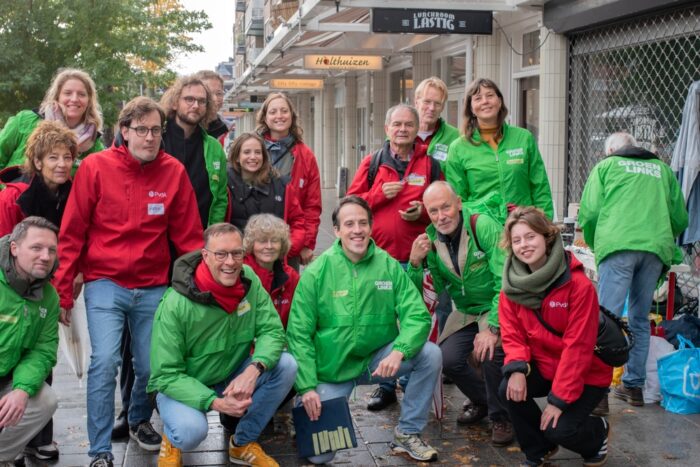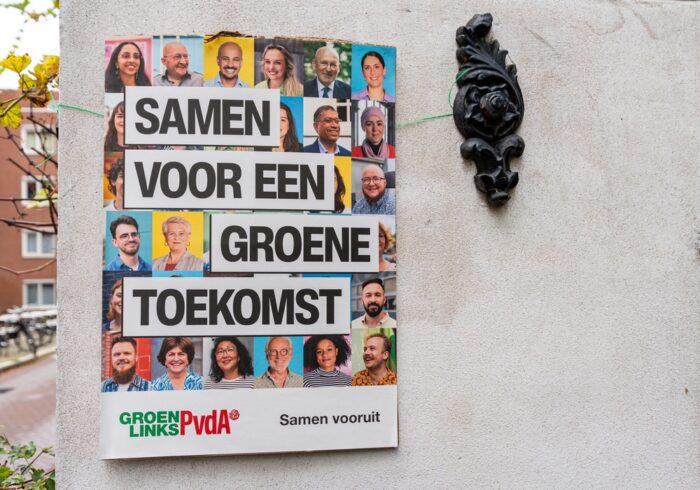The Progressive Post
The Czech elections in a (Central-) European context

The Czech progressives have suffered a disastrous defeat in this weekend’s general elections. This raises concerns about the future of the centre-left in the country. While domestic causes have been the principal factors in the defeat, the role of regional and European dynamics in the election campaign are worth exploring too.
The Czech centre-left has been marginalised in the recent general elections: for the first time since 1992, the Czech Social Democrats will have no representation in the Chamber of Deputies. This leaves the political landscape dominated by two antagonist blocs: a centre-right and right-wing bloc (the Civic Democratic Party, the Cristian Democrats, TOP 09, Pirates and Mayors) on the one hand, and a populist and extremist bloc on the other hand (ANO and the Direct Democracy Party). The outcome has confirmed the emerging polarisation of the society, with cultural issues instead of traditional socioeconomic issues being more and more at the centre of the political debate, political campaigns and political mobilisation. This has been illustrated by the absence of big socioeconomic issues in the recent campaign, as well as by the lack of well-formulated, long-term visions of the future of our society, economy, and our European project. Most of the issues that are high on the agenda in the EU have been largely absent from the electoral debate. The notable exception are anti-European stances, unsurprisingly endorsed by the parties of the populist bloc. Although European issues have not played any significant role in the campaign, it is worth exploring the European – and especially Centre-European – context that has influenced the positioning of the political parties and different societal groups. With a little bit of exaggeration, the elections could be considered to be among many other issues about an opposition between a ‘European future’ versus a ‘Central European future’.
How to understand this opposition? How has it further strengthened the existing cleavages in society? Notwithstanding the absence of European topics in the campaign, substantially different views on the country’s position in Europe have heavily influenced it. Are we going to actively be at the core of the European Union, and of the European debate, with the need to seek relevant partners for this purpose among member states and European political families? Or are we going to choose ‘centre-Europeanism’ instead: putting the country on the periphery of the European debate and condemning it to work with a limited number of partners such as Victor Orbán, Janez Janša or Jarosław Kaczyński?
‘Centre-Europeanism’ is a broader trend in the region. It stems from the growing dissatisfaction and frustration of a substantial part of the population of Central European countries. It is not the aim of the author to elaborate on the roots of this dissatisfaction which could be identified in unsolved social problems over a long period of political and economic transformation of the region after 1989. What is relevant for the analysis is that these feelings create a picture of two detached ‘Europes’: an ‘old Europe’ on the one hand, that is becoming unrealistic and cut off peoples’ everyday lives and concerns, and a ‘new Europe’ that is mostly presented as a handful of Central European countries that are ready to protect ‘our’ way of life and our culture. Indeed, these feelings are articulated through a shallow but very pervasive criticism of ‘Brussels’ and everything coming from the European Union. And they are also translated into a growing sentiment of ‘we in Central Europe’ and the ‘alien rest of Europe’. Moreover, these sentiments have a significant influence on the public’s opinions and positions in the ongoing debates on migration policy, the response to the pandemic or the necessary green transition. All these sentiments are epitomised by the politics of Victor Orbán, which serve as inspiration for many populists in Central Europe and which have also been present in the domestic debate ahead of Czech elections. It is worth noting that Victor Orbán was the only foreign politician to take part in the election campaign and that he supported Andrej Babiš and his ANO, even though their parties are not part of the same European political family – in the European Parliament, Babiš’ ANO is part of the Renew Europe group, while Orban’s Fidesz MEPs are not affiliated to any group anymore.
In general, these sentiments provide the background and the broader context for the ongoing polarisation of the societies in the region affecting the political debate, as well as the ways political parties mobilise support. Indeed, these sentiments are not only endemic to Czechia, they affect the political life in Poland, Slovenia, Slovakia, and of course in Hungary. They are very much present in the emotional and heated debate about the standards of democracy and human rights in a region where Orbánism and Orbán’s notion of illiberal democracy have found fertile soil.
To conclude, these trends represent an enormous challenge for the centre-left in the countries of the region. In a way, these dynamics are a trap for Progressives all around Europe. It is a trap of political mist or political greyness. Indeed, we need to push much stronger to put socioeconomic issues and values – such as social justice and solidarity – back to the centre of the European political debate. We should avoid political strategies that put cultural issues at the core of our vision for Europe and our societies. At the same time, Progressives cannot stay aside in these debates that focus on identity. The Czech centre-left has self-inflicted the defeat largely because it has not been clear where it stands on issues of democracy, human rights or ‘Europe versus Central Europe’. At the same time, it has not been able to come up with a third alternative and was cornered by the polarisation of the public debate. With no third alternative available, the only option left was to ‘pick sides’ and this moment was missed by the Czech centre-left. If the Czech centre-left is to make a return, it needs to find a way to avoid falling into the same trap of mist in the future. We can start by working much closer with the centre-left parties in other countries of Central Europe – sharing experiences, mobilising together, building stronger partnerships with the civil societies. Because if we are to avoid the trap, and to overcome ‘centre-Europeanism’, we need to come with a new progressive vision for our societies that is realistic and credible at the same time.
Photo credits: European Council




